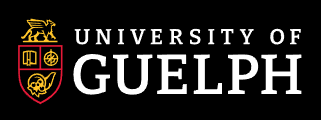A Study of Lu Xun’s Translation from the Perspective of Skopos Theory
DOI:
https://doi.org/10.63313/EH.9009Keywords:
Skopos Theory, Lu Xun’s translation, translation strategiesAbstract
Lu Xun is not only the founding father of modern Chinese literature but also an influential translator. By translating a large number of Western literary works, he introduced new intellectual resources to Chinese readers and made signifi-cant contributions to the enlightenment and development of modern Chinese culture. Lu Xun’s translation practice can be divided into three stages—early, middle, and late—during which his translation strategies underwent remarkable changes, reflecting his profound reflections on the functions of translation. This paper, from the perspective of Skopos Theory, explores the evolution of Lu Xun’s translation thought and strategies, analyzing how his choices were closely con-nected with the sociopolitical context of his time. The study finds that Lu Xun’s translation was not merely a linguistic transfer, but a powerful tool for intellec-tual enlightenment, cultural dissemination, and social transformation. Skopos Theory provides an effective framework for understanding the shifts in his translation practices and reveals the underlying sociocultural motivations be-hind them.
References
[1] Gan, L., & Luo, X. (2019). On the Three Dimentional Changes of Lu Xun’s Translation Thoughts. Shanghai Journal of Translators, (05), 78-83+95.
[2] Gao, Y. (2007). Lu Xun and Literary Translation: Research Status and Prospects. Social Sciences in Guangdong, (02), 179–183.
[3] Li, S. (2010). On Luxun’s Translation from the Perspective of Skopos Theory. Zhejiang University.
[4] Li, X. (2012). Interpreting the Transformation of Lu Xun’s Translation Strategies from the Perspective of Translator Subjectivity. Language Planning, (02), 27–28. https://doi.org/10.16412/j.cnki.1001-8476.2012.02.007.
[5] Luo, P. (2013). Lu Xun’s Translation Activity in the Theory of Field and Habitus. Foreign Languages and Literature, 29(04).
[6] Wang, Y. (2000). The Complete Works of Wang Yao. Shi Jiazhuang: Hebei Education Pub-lishing House Co., Ltd.
[7] Yu, J. (2007). On Lu Xun’s Literary Translation Theory from the Perspective of Ideological Manipulation. Foreign Languages and Their Teaching, (02), 61-62+65.
[8] Vermeer, H. J. (1989). Skopos and Commission in Translational Action[M]. Shanghai: Shanghai Foreign Language Education Press,1989.
Downloads
Published
Issue
Section
License
Copyright (c) 2025 by author(s) and Erytis Publishing Limited.

This work is licensed under a Creative Commons Attribution 4.0 International License.





















